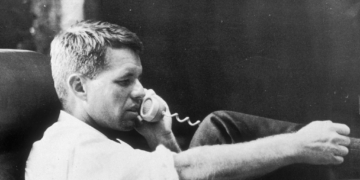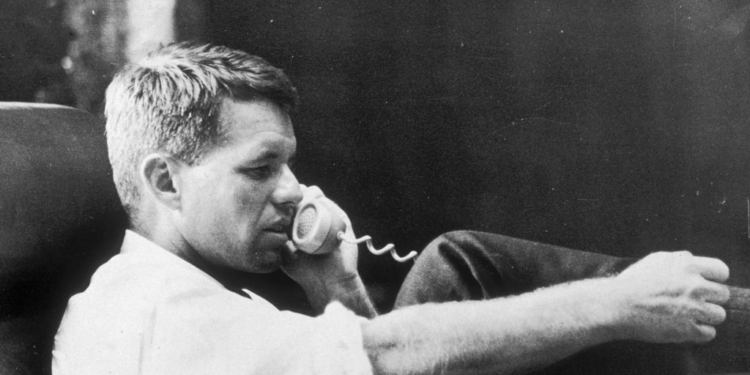The CIA declassified nearly 1,500 pages of documents on Thursday, shedding light on its investigation into the 1968 assassination of New York Senator Robert F. Kennedy, which also revealed previously undisclosed interactions between Kennedy and the intelligence agency.
According to the Associated Press, the records show Kennedy voluntarily shared his observations with the CIA after a 1955 visit to the Soviet Union, acting as an informal informant.
The newly released documents include 54 files detailing the agency’s efforts to determine whether RFK’s assassin had foreign connections and examining international reactions to his killing.
Additionally, the materials contain information on the assassinations of President John F. Kennedy and Martin Luther King Jr., as well as the 1972 attempted assassination of Alabama Governor George Wallace.
The document release follows an order from President Donald Trump to make records related to the assassinations of RFK, President John F. Kennedy, and Martin Luther King Jr. publicly available.
More than 10,000 pages concerning RFK’s assassination were declassified in April, and Thursday’s release includes additional materials on JFK and King, some addressing conspiracy theories that emerged after RFK’s death.
CIA Director John Ratcliffe praised the agency’s transparency, stating, “Today’s release delivers on President Trump’s commitment to maximum transparency, enabling the CIA to shine light on information that serves the public interest. I am proud to share our work on this incredibly important topic with the American people.”
RFK, a Democratic senator, was assassinated on June 5, 1968, at the Ambassador Hotel in Los Angeles, moments after celebrating his victory in California’s presidential primary. His convicted assassin, Sirhan Sirhan, is serving a life sentence.
One newly revealed CIA memo, sent to the White House the day after Kennedy’s death, indicates that an initial agency records search found no information on Sirhan.
The documents reveal that Kennedy voluntarily shared observations from his trip to the Soviet Union in 1955, reflecting the era’s emphasis on firsthand accounts from Americans who had visited Soviet territories. Officials and business leaders were often asked to report on their experiences upon returning to the U.S.
“On 29 Aug 55, while in Novosibirsk, USSR, a friend and I visited a State machine factory. The factory has 3,500 employees, of whom one third are women. The wage scale is between 840 and 2,500 rubles,” Kennedy stated in an interview with the CIA, according to the documents. “The Director of the plant whose name I do not recall was frosty, although the engineer was friendly.”
The agency used artificial intelligence to scan its archives for RFK-related documents that could be declassified. The search uncovered numerous materials, including records of Kennedy’s meetings with the CIA, some of which had little direct connection to his assassination.
Kennedy’s son, U.S. Health and Human Services Secretary Robert F. Kennedy Jr., welcomed the document release, stating, “Lifting the veil on the RFK papers is a necessary step toward restoring trust in American government.”

























